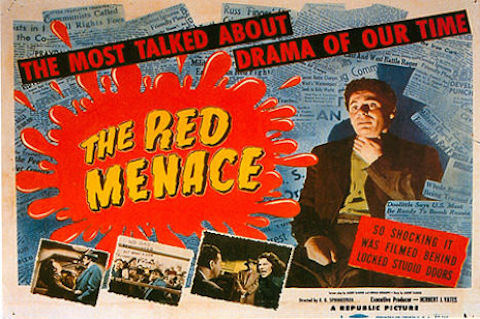Just two weeks ago, we had discussed the bias in international reporting, and the tendency of media outlets to report the most sensational facts without providing proper context and a full-view of the situation. How time appropriate, given the outbreak of the Russia-Crimea situation in the past few days. As we hear the reporting of the situation in US and western media, I’m reminded repeatedly of my earlier complaints. So many of the articles seem so sensational and biased in their reporting.
What stands out glaringly is the extent to which Russia has been condemned. Over the past days, I’ve seen Putin compared to Hitler, Russia compared to Nazi Germany, and the Crimean annexation compared to Hitler’s invasion of Poland. The same media that has always jumped to condemn Bush-Hitler comparisons, is now the first to invoke Godwin’s Law when describing Russia and Putin.
Personally, as someone who has no ties to Russia, neither positive nor negative, none of their actions thus far strike me as being overly outrageous. Hence why the hyperbolic media reporting in the US strikes me as being a bit too biased and extreme.
A recap of the key events in recent days:
Ukraine’s democratically elected government was overthrown by mass-protests in the capital, Kiev.
These protests represent popular sentiment in Western Ukraine, but not in the East. Eastern Ukraine is strongly pro-Russian, and it was this faction that won the most recent elections and installed the President Viktor Yanukovych. The protests could thus be seen as a non-democratic overthrow of a democratically elected government, by the losing minority. It can also be credibly cast as the political censorship and subjugation of the pro-Russia Eastern-Ukraine, by the pro-EU Western-Ukraine.
Russia, in protest of the above, annexes/liberates Crimea, the already semi-autonomous and most heavily pro-Russian province in Ukraine. It was a bloodless takeover, with no casualties. There is no local protest or uprising against the Russian occupation. The Russian army is cheered on and greeted warmly by the local population. Secession fever breaks out all over Eastern Ukraine, as people protest against the protester-installed government in Kiev. Pro-Russian protesters drape Russian flags over government buildings. Ukraine’s own Admiral Berezovsky, who was appointed by the interim government in Kiev, orders Ukrainian naval forces on the peninsula to disregard any orders from the “self-proclaimed” authorities in Kiev.
Pro-Russian leaders in Crimea have scheduled a referendum to be held later this month, that will let the locals decide on secession and ties with Russia. Ironically, both Kiev and the West are opposed to this democratic vote that would allow the locals to chart their own future. Recapping these events, I’m having a hard time expressing outrage over anything Russia has done in the past weeks.
To be sure, this is a very complicated situation, and I certainly do not mean to oversimplify it. What exactly the locals in Crimea and Eastern-Ukraine want, and whether this is aligned with Russian intervention, is certainly a debatable topic. There are good arguments that can be made both for and against Russian intervention in Crimea. If the day ever comes when Russia ignores or suppresses the popular will of the Crimean people, I will be the first to condemn Putin.
However, what I do find most objectionable today is the hyperbole with which Russia is being regarded by Western media. The bias inherent in almost all reporting, and the arguments presented to justify only one of the two sides, is virtually bordering on propaganda. Even worse is the lack of context with which Russia’s actions are being presented. Consider the following list of US interventions in foreign countries over the past half century.
- US Instigation of Military Coup in Chile
- The US invasion of Panama, in order to protect national interests in the Panama Canal
- The US sponsored invasion of Cuba to overthrow the popular revolutionary, Fidel Castro
- US Intervention in Vietnam
- US Invasion of Iraq, in violation of both UN law and Iraqi public sentiment, resulting in 500,000 Iraqi civilian deaths
- US assassination attempts on foreign leaders, such as Fidel Castro, in the past decades
- US spying on Allies, other countries’ Heads of States, and virtually everyone using the Internet
After looking at this list, it’s hard to make the case that Russian intervention in Crimea is outrageous compared to what we have been doing for decades. At no point during any of the above controversies did the media question whether our country is deserving of economic sanctions, whether we should have our G8 membership revoked, or whether we’re becoming a police-spy-war state like Nazi Germany. And yet, Russian intervention in Crimea has been deemed worthy of all the above.
Let me conclude by proclaiming one thing clearly. I am extremely glad to be living here in the USA, and not in Russia. We have so much here to appreciate and be thankful for. But this patriotism is no excuse for biased reporting and hyperbole against Russia. It’s been 25 years since the Cold War ended. It’s time we evaluated Russia’s actions objectively, and not from the narrow prism of Western ethnocentrism.
Related Links:
More than 96% of Crimeans vote to rejoin Russia
89% of voters in Eastern Ukraine defy Kiev & vote in favor of self-determination
A BBC Documentary providing context & analysis of the Russian perspective. Probably the best reporting I’ve seen of the issue, from a western source

3 thoughts on “The Crimean “Crisis” and Western Bias”
Comments are closed.